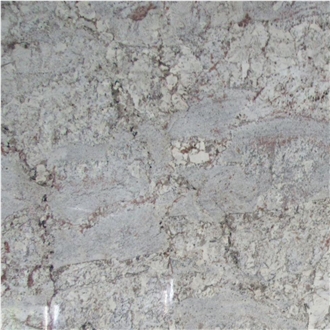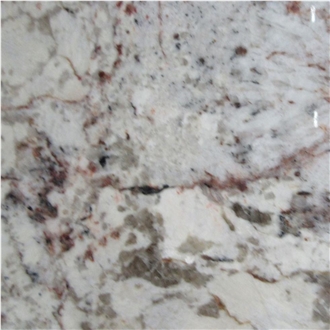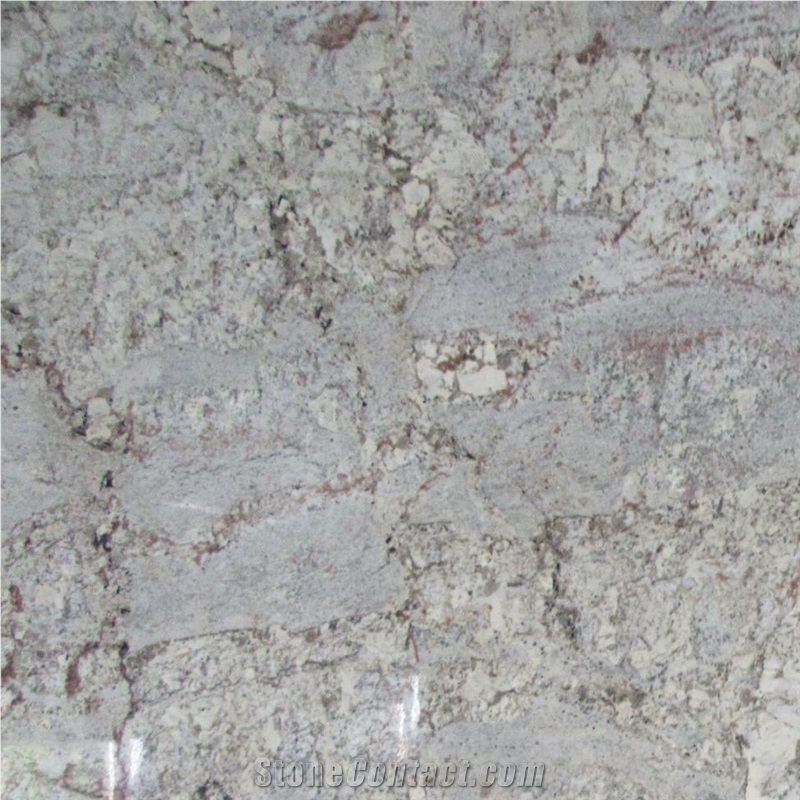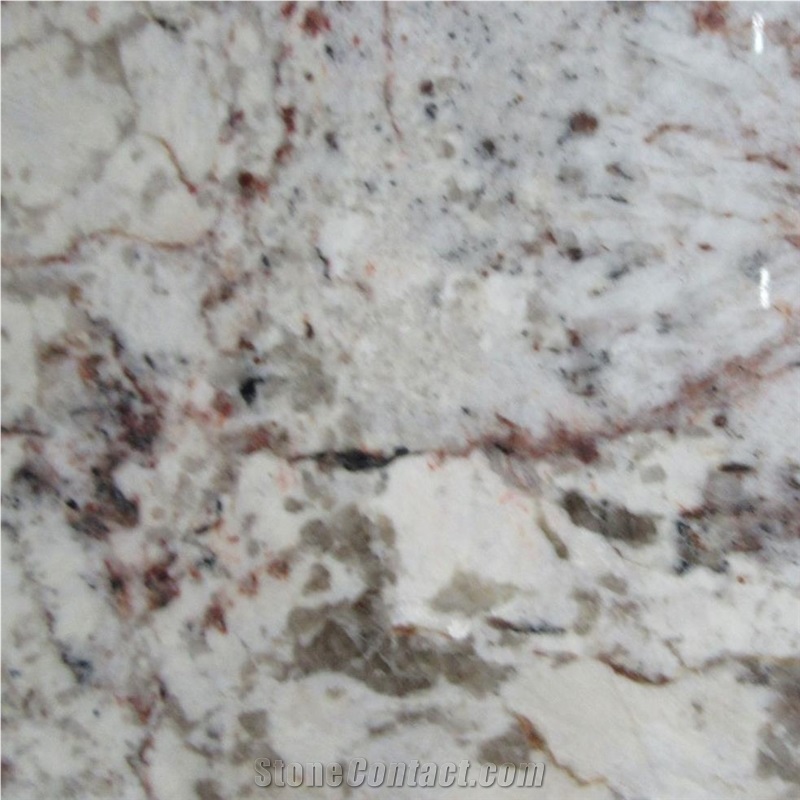Siena White Granite
 Brazil
Brazil
Siena White Granite is highly regarded for its elegant appearance and versatile nature, making it a favored choice for both residential and commercial applications.
Siena White Granite features a predominantly white background with subtle variations in tone and texture. The white color is often complemented by small to medium-sized gray, beige, or taupe veins that traverse the surface of the stone. These veins create a sense of movement and visual interest, adding depth and character to the granite.
The overall look of Siena White Granite is clean, sophisticated, and timeless. It can seamlessly blend with a variety of design styles, from traditional to contemporary, and can serve as a beautiful backdrop or focal point in any space.
Due to its durability and resistance to heat, scratches, and stains, Siena White Granite is well-suited for various applications. It is commonly used for countertops, flooring, wall cladding, backsplashes, and other interior and exterior surfaces. Its smooth and polished surface enhances the stone's natural beauty and allows for easy maintenance.
In terms of aesthetic appeal, Siena White Granite brings a sense of brightness, elegance, and luxury to any environment. Its light-colored background can help create an open and spacious feel, while the subtle veining adds a touch of sophistication and visual intrigue.
As with any natural stone, it is important to properly seal and maintain Siena White Granite to protect it from staining and to ensure its longevity. Routine cleaning with mild soap and water is usually sufficient for day-to-day maintenance.
Siena White Granite offers a timeless and versatile option for those seeking a beautiful and durable natural stone. Its combination of white tones and delicate veining make it a popular choice for enhancing the aesthetic appeal of both residential and commercial spaces.

What is the average hardness of Brazil's Siena White Granite?

Is white granite difficult to maintain?

Can Brazil's Siena White Granite be used outdoors?

Is Brazil's Siena White Granite an expensive stone?

Is white granite better than quartz?

Are there color variations of Brazil's Siena White Granite?

Does white granite turn yellow?

What are the disadvantages of white granite countertops?

What is the best natural stone for kitchen countertops?

What is the most stain-resistant white granite?

Can Brazil's Siena White Granite be used exterior applications in hot climates?

Can Brazil's Siena White Granite be used in a office?

Can Brazil's Siena White Granite be used in wall coverings?

Which granite is the whitest?

What is the coefficient of friction of Sandblasted Brazil's Siena White Granite tiles?

How thick is Brazil's Siena White Granite slabs?
-

-

XIAMEN SHUINAN MACHINE CO.,LTD.
 China
China
 4YRDiamond members are premium members on platform, providing members with comprehensive approach to promoting their products, increasing products exposure and investment return to maximize.
4YRDiamond members are premium members on platform, providing members with comprehensive approach to promoting their products, increasing products exposure and investment return to maximize.
 Verified Supplier is for prove company authenticity,including business license,trade license and effective office space,to enhance buyers' trust to suppliers and their products, reducing communication costs.
Verified Supplier is for prove company authenticity,including business license,trade license and effective office space,to enhance buyers' trust to suppliers and their products, reducing communication costs.
Contact Supplier
-

 Brazil
Brazil
Contact Supplier
-

-

XIAMEN SHUINAN MACHINE CO.,LTD.
 China
China
 4YRDiamond members are premium members on platform, providing members with comprehensive approach to promoting their products, increasing products exposure and investment return to maximize.
4YRDiamond members are premium members on platform, providing members with comprehensive approach to promoting their products, increasing products exposure and investment return to maximize.
 Verified Supplier is for prove company authenticity,including business license,trade license and effective office space,to enhance buyers' trust to suppliers and their products, reducing communication costs.
Verified Supplier is for prove company authenticity,including business license,trade license and effective office space,to enhance buyers' trust to suppliers and their products, reducing communication costs.
Contact Supplier
-

 Brazil
Brazil
Contact Supplier
-

-

-

-

The request includes: 1. surface finished, size 2. quantity required









